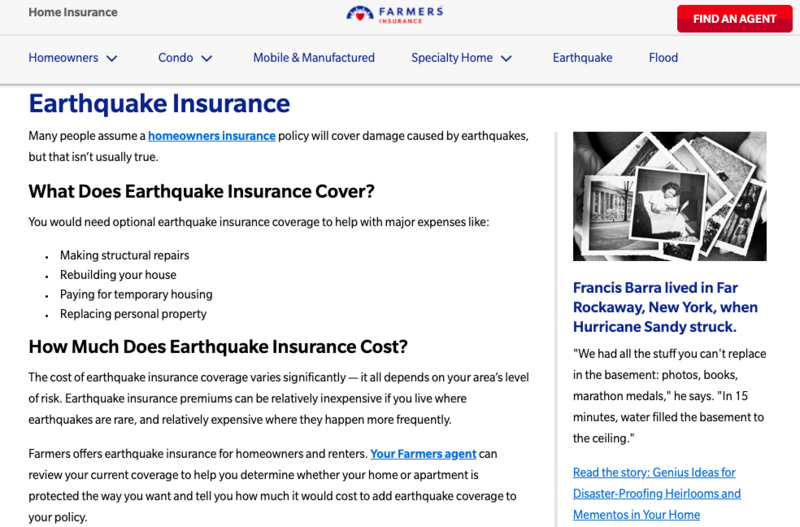Homeowners frequently struggle to finance home improvements, and a home equity loan credit union can provide a viable solution. However, navigating the process—from understanding loan types to comparing rates—requires careful planning. Interest rates and fees can vary significantly, and securing approval hinges on factors like credit score and loan-to-value ratio. This guide clarifies the complexities of obtaining a home equity loan from a credit union.
Toc
- 1. Understanding Home Equity: Your Financial Leverage
- 2. The Role of Loan-to-Value (LTV) Ratio
- 3. Related articles 01:
- 4. Recent Trends Impacting Home Equity Loans
- 5. Why Choose a Home Equity Loan Credit Union?
- 6. Finding the Best Home Equity Loan Credit Union Near Me
- 7. Qualifying for Your Home Equity Loan
- 8. Related articles 02:
- 9. Home Equity Loan Calculator: Planning Your Financial Strategy
- 10. Application Process Demystified
- 11. Managing Your Home Equity Loan Responsibly
- 12. Understanding Home Equity Loan Credit Union Requirements
- 13. Conclusion: Your Financial Empowerment Pathway
Understanding Home Equity: Your Financial Leverage

Home equity represents the financial power hidden within your property. It’s calculated by subtracting your outstanding mortgage balance from your home’s current market value. For instance, if your home is valued at $350,000 and you owe $225,000, you’ve accumulated $125,000 in home equity—a potential financial resource waiting to be strategically utilized.
Types of Home Equity Financing
When exploring options for home equity loans through credit unions, you’ll encounter two primary financing structures:
- Traditional Home Equity Loan
- Lump-Sum Payment: You receive a single disbursement of funds, beneficial for large, one-time expenses like major renovations or debt consolidation.
- Fixed Interest Rate: Your interest rate remains constant throughout the loan term, providing predictable monthly payments and easing budgeting.
- Ideal Use Cases: Best suited for significant, planned expenses where you know exactly how much you need to borrow.
- Home Equity Line of Credit (HELOC)
- Revolving Credit Line: Similar to a credit card, a HELOC allows you to draw funds as needed, which can be advantageous for ongoing projects or unexpected costs.
- Variable Interest Rates: The interest rate may fluctuate over time, impacting your monthly payments and overall costs.
- Flexible Borrowing Options: Suitable for situations where expenses are spread out over time, such as long-term renovation projects.
Pros and Cons of Each Option
Understanding the advantages and disadvantages of each option can help you make an informed choice:
Home Equity Loan
Pros:
- Fixed payments make budgeting straightforward.
- Lower risk of interest rate increases.
Cons:
- Less flexibility in borrowing amounts.
- May require a larger amount of equity to qualify.
HELOC
Pros:
- Flexibility to borrow only what you need when you need it.
- Potentially lower initial interest rates compared to fixed loans.
Cons:
- Variable interest rates can lead to fluctuating payments.
- Risk of over-borrowing due to easy access to funds.
The Role of Loan-to-Value (LTV) Ratio
Your Loan-to-Value (LTV) ratio is a critical factor in determining your eligibility for a home equity loan. It is calculated by dividing your current mortgage balance by your home’s appraised value. A lower LTV ratio generally results in better loan terms and interest rates.
1. https://baohotbc.com/mmoga-debt-consolidation-vs-personal-loan-understanding-your-options/
4. https://baohotbc.com/mmoga-finding-the-best-student-loan-servicer-in-2024-a-comprehensive-guide/
5. https://baohotbc.com/mmoga-bad-consolidation-credit-debt-loan-your-roadmap-to-financial-recovery/
How to Calculate Your LTV Ratio
To calculate your LTV ratio, use the following formula:
[ \text{LTV Ratio} = \left( \frac{\text{Mortgage Balance}}{\text{Home Value}} \right) \times 100 ]\n For example, if your mortgage balance is $200,000 and your home is valued at $300,000:
[ \text{LTV Ratio} = \left( \frac{200,000}{300,000} \right) \times 100 = 66.67% ]\n Most lenders prefer an LTV ratio of 80% or lower for home equity loans. However, it’s important to note that LTV ratios are not the only factor considered by lenders. Factors such as debt-to-income ratio (DTI), credit score, and the type of property (e.g., primary residence vs. investment property) also significantly influence loan approval and interest rates.
For example, if a borrower has a low LTV ratio of 60% but a high DTI of 50%, this could raise red flags for lenders, potentially impacting loan approval despite favorable equity.
Recent Trends Impacting Home Equity Loans
The landscape of home equity loans is evolving, especially with the recent rise in interest rates. As borrowing costs increase, many homeowners are reassessing their options for financing through home equity. Higher interest rates affect both HELOCs, which typically have variable rates, and fixed-rate home equity loans, leading to increased monthly payments.
In response to economic uncertainty, some lenders are tightening lending standards. This means that while credit unions often offer lower rates, the competitive landscape is shifting, and it’s crucial for borrowers to stay informed and proactive.
Why Choose a Home Equity Loan Credit Union?
Credit unions offer unique advantages for home equity financing:
- Lower Interest Rates: Credit unions typically have lower rates than traditional banks, making borrowing more affordable. However, it’s important to remember that while credit unions often provide lower rates, this isn’t universally true. Rates depend on the credit union’s financial health, the borrower’s creditworthiness, and prevailing market interest rates. Therefore, comparing rates from multiple credit unions and banks before making a decision is crucial.
- Personalized Member-Focused Service: As member-owned institutions, credit unions prioritize the needs of their members, leading to a more personalized experience. However, the experience can vary significantly depending on the size and resources of the specific credit union. Larger credit unions might provide less personalized service compared to smaller, local ones.
- Reduced Fees: Many credit unions charge lower fees compared to banks, which can save you money over the life of the loan.
- Community-Oriented Financial Support: Credit unions often reinvest profits back into the community, supporting local initiatives and services.
Counterpoints to Consider
While credit unions present several benefits, it’s also essential to acknowledge that banks sometimes offer competitive or even lower rates, especially for borrowers with excellent credit. Additionally, some banks may provide more flexible loan terms or faster processing times, which could be advantageous depending on your financial situation and urgency.
Finding the Best Home Equity Loan Credit Union Near Me
To locate an excellent home equity loan credit union, consider these strategies:
- Use Online Credit Union Finders: Websites that aggregate credit union information can help you find local options.
- Check Local Financial Institution Directories: Many regions have directories listing credit unions and their services.
- Research “Home Equity Loan Credit Union Near Me” Searches: This can provide immediate results for local credit unions offering home equity loans.
- Compare Home Equity Loan Credit Union Rates: Look at multiple institutions to find competitive rates.
- Read Member Reviews and Testimonials: These can provide insight into the experiences of other borrowers.
Qualifying for Your Home Equity Loan
Credit unions typically evaluate several key factors when considering your application. Understanding these elements can enhance your chances of securing a favorable loan.
Credit Score Impact
Your credit score plays a significant role in determining your eligibility for a home equity loan. Here’s a general breakdown of credit score ranges:
1. https://baohotbc.com/mmoga-finding-the-best-student-loan-servicer-in-2024-a-comprehensive-guide/
3. https://baohotbc.com/mmoga-debt-consolidation-vs-personal-loan-understanding-your-options/
5. https://baohotbc.com/mmoga-bad-consolidation-credit-debt-loan-your-roadmap-to-financial-recovery/
- Excellent Credit: 750 and above
- Good Credit: 700 to 749
- Fair Credit: 650 to 699
- Poor Credit: Below 650 may face challenges
Essential Documentation
When applying for a home equity loan, you’ll need to provide several key documents, including:
- Proof of Income: Recent pay stubs or tax returns to verify your income.
- Employment Verification: A letter from your employer or recent employment records.
- Current Mortgage Statements: Documents showing your outstanding mortgage balance.
- Property Tax Documents: Recent tax assessments or bills.
- Comprehensive Credit History: A full report detailing your credit history.
Additional Factors Affecting Approval
Beyond credit score and documentation, several other factors play a crucial role in your application:
- Debt-to-Income Ratio: Credit unions typically prefer a DTI ratio under 43%. A high DTI could hinder your approval even with a low LTV.
- Significant Home Equity: Generally, you need at least 15-20% equity in your home to qualify.
- Stable Employment History: A consistent job history can strengthen your application.
- Low Existing Mortgage Balance: A smaller balance increases your available equity.
Home Equity Loan Calculator: Planning Your Financial Strategy
A home equity loan calculator can be an invaluable tool for planning your finances. By inputting your desired loan amount, interest rate, and loan term, you can:
- Estimate Monthly Payments: Understand what your payments will look like over time.
- Project Total Interest Costs: See how much you’ll pay in interest over the life of the loan.
- Compare Different Loan Scenarios: Evaluate various loan options to find the best fit for your budget.
Pro Tip: Most credit unions offer free online calculators, so take advantage of these resources to make informed decisions.
Application Process Demystified
Step-by-Step Home Equity Loan Journey
- Pre-qualification Assessment: Determine how much you may be eligible to borrow based on your income and credit score.
- Formal Application Submission: Complete an application with all required documentation.
- Documentation Review: The credit union will review your financial information and credit history.
- Property Appraisal: An appraisal may be conducted to determine your home’s current value.
- Loan Approval: Once approved, you will receive the terms of your loan.
- Closing and Fund Disbursement: Sign the necessary documents and receive your funds.
Insider Tips for Approval
- Maintain a Stable Income: Show consistent income to improve your approval chances.
- Minimize Existing Debt: Lower your debt-to-income ratio by paying off existing debts.
- Keep Credit Utilization Low: Aim to use less than 30% of your available credit.
- Prepare Comprehensive Documentation: Having all necessary documents ready can speed up the approval process.
- Consider Navy Federal Home Equity Loan Requirements: Researching their criteria can provide insights into common expectations among credit unions.
Managing Your Home Equity Loan Responsibly
Smart Borrowing Strategies
- Borrow Only What You Need: Avoid taking out more than necessary to minimize interest costs.
- Have a Clear Repayment Plan: Understand how you will repay the loan and include it in your budget.
- Consider Tax Implications: Interest on home equity loans may be tax-deductible if used for home improvements.
- Monitor Interest Rates for Refinancing Opportunities: If rates drop, consider refinancing to lower your payments.
Potential Uses for Home Equity
Home equity loans can serve various purposes, including:
- Home Renovations: Fund improvements that increase your home’s value.
- Debt Consolidation: Use the loan to pay off high-interest debts.
- Educational Expenses: Finance higher education for yourself or family members.
- Emergency Fund Creation: Establish a financial cushion for unexpected expenses.
- Investment Opportunities: Use the equity to invest in additional properties or businesses.
Understanding Home Equity Loan Credit Union Requirements
Each credit union has unique criteria, but common requirements include:
- Minimum Credit Score: Typically between 620-680.
- Debt-to-Income Ratio: Should ideally be under 43%.
- Significant Home Equity: Generally, you need at least 15-20% equity in your home.
- Stable Employment History: A consistent job history can strengthen your application.
- Low Existing Mortgage Balance: A smaller balance increases your available equity.
Conclusion: Your Financial Empowerment Pathway
Navigating home equity loans through credit unions requires research, preparation, and strategic planning. By understanding your options, comparing home equity loan credit union rates, and approaching the process methodically, you can unlock your home’s financial potential.
A home equity loan is more than a financial transaction—it’s an opportunity to transform your property’s value into meaningful personal or professional investments. Take your time, ask questions, and choose a credit union that aligns with your financial goals.
Ready to explore your home equity loan options? Contact local credit unions today and start your journey toward financial flexibility. With the right information and tools, you can make empowered decisions that benefit your future.










